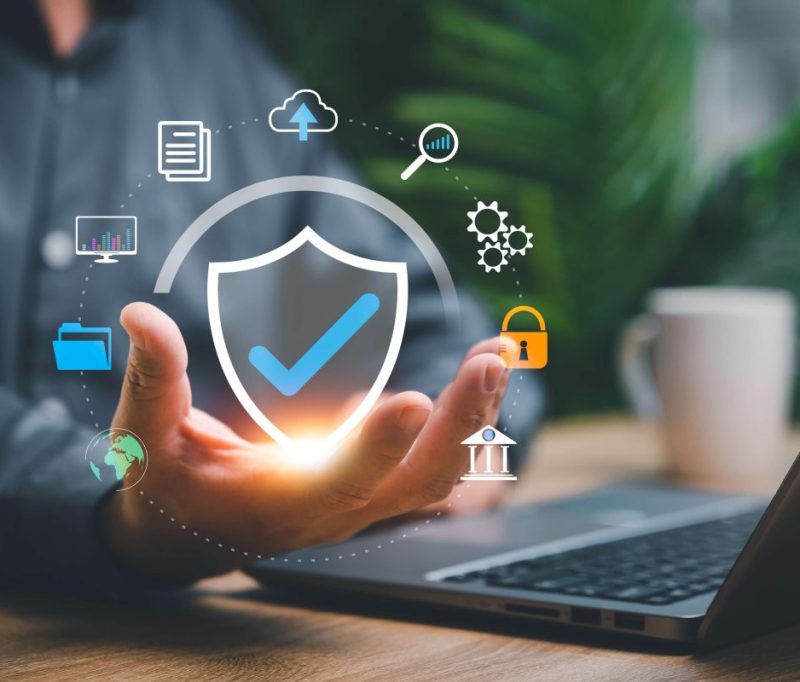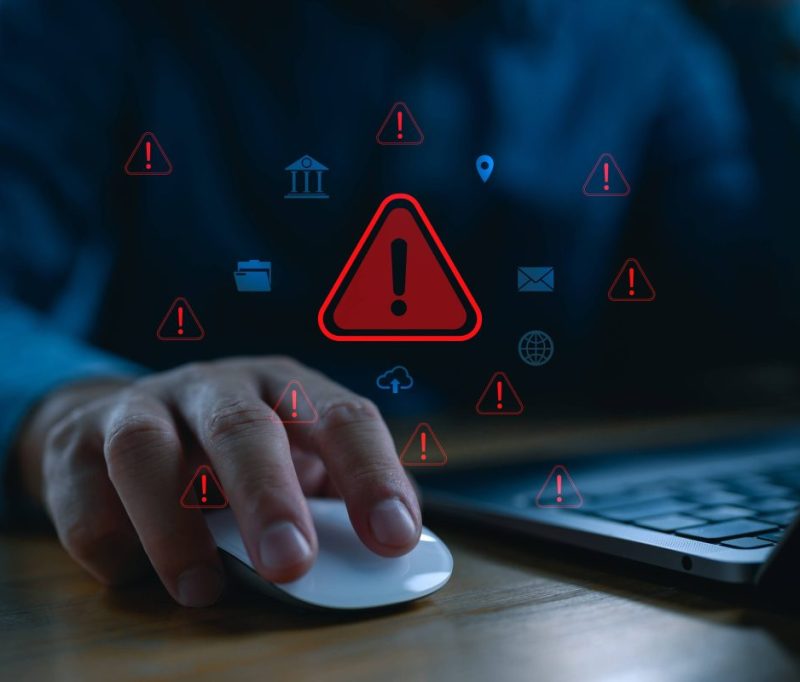In 2025, UK businesses face growing digital threats—from AI-driven phishing scams to targeted ransomware attacks. With technology central to daily operations, robust cybersecurity is now essential for companies of all sizes. It’s no longer just an IT concern but a business-critical priority that safeguards finances, customer trust, and brand reputation. Whether handling sensitive data or everyday internal systems, staying ahead of cyber threats is vital. This blog outlines 10 practical cybersecurity tips tailored for UK businesses, helping you minimise risk, improve resilience, and protect your organisation in an increasingly complex and unpredictable digital landscape. Stay secure, stay prepared.
The 2025 Cybersecurity Landscape
Cybercriminals are evolving, and so are their methods. In 2025, UK businesses are facing threats like:
- AI-generated phishing scams that look more real than ever.
- Ransomware-as-a-service platforms are enabling amateur hackers.
- Supply chain attacks that target vendors and partners.
Additionally, compliance with UK regulations such as the Data Protection Act 2018 and ongoing ICO updates is more important than ever. This makes it essential for every business to adopt a layered, proactive approach to cybersecurity.

1. Conduct Regular Cybersecurity Audits
A cybersecurity audit helps identify weaknesses before they become a problem. These audits involve scanning your systems, checking for outdated software, and reviewing user access. Consider using both internal and third-party audits for a full picture.
If you’re using managed IT services security, ask your provider how often audits are performed and how they report on risks. For companies in high-risk sectors like finance or healthcare, audits should be scheduled at least quarterly.
2. Keep Software and Systems Updated
Outdated software is one of the easiest entry points for cyber attackers. Updates often contain security patches that close off vulnerabilities.
Make sure all devices—computers, servers, routers, and mobile phones—are set to update automatically. This includes apps, plug-ins, and firmware. Businesses can also use patch management tools to monitor updates across their organisation.
3. Train Your Staff Continuously
Most breaches happen because of human error. Employees may click on fake links, use weak passwords, or fall for phishing scams. Regular training can make a huge difference.
Use interactive training tools, run monthly phishing simulations, and create a cybersecurity culture. If your business operates in a regulated sector, such as healthcare, partner with experts in healthcare IT consulting to design sector-specific training programs.
4. Enable Multi-Factor Authentication (MFA)
MFA adds an extra layer of protection. Even if a hacker has your password, they won’t be able to access your account without the second verification step.
Apply MFA to all critical systems—email, CRM tools, remote access platforms, and cloud storage. It’s a small step with a big security impact.
5. Back Up Your Data – Properly
Backing up data is essential, but it needs to be done the right way. Use the 3-2-1 rule: keep three copies of your data, stored in two formats, with one copy offsite or in the cloud.
Test your backups regularly to make sure they work. Without regular testing, you won’t know if your data is recoverable in an emergency. Also, check that backups are encrypted and stored in line with UK data protection standards.
6. Secure Your Remote and Hybrid Workforce
With more people working from home, cybersecurity risks have shifted. Remote employees may use unsecured Wi-Fi or personal devices, putting your network at risk.
Ensure all remote staff use VPNs, endpoint protection, and strong access controls. You should also define a clear remote work policy that covers everything from acceptable use to device management.
This is especially important for businesses using managed IT services security, where the provider may be supporting both office-based and remote users.
7. Use Strong Passwords and a Password Manager
Passwords are still a major weakness for many businesses. Employees often reuse passwords across accounts or use simple ones that are easy to guess.
Encourage the use of strong, unique passwords for each login. A good password manager helps staff store and generate complex passwords without needing to remember them all. Make sure your password manager is UK or EU-based and complies with local data laws.
8. Have a Cyber Incident Response Plan
If an attack happens, you need to act fast. A cyber incident response plan outlines exactly what to do—who to contact, how to isolate affected systems, and how to notify customers or regulators if needed.
Every business should have a basic plan, tested at least once a year. If you store sensitive information or operate in a regulated sector, the plan must include clear steps for reporting under GDPR and the UK’s Data Protection Act.
9. Monitor Your Systems in Real Time
Don’t wait for someone to tell you your systems have been breached. Use real-time monitoring tools like SIEM (Security Information and Event Management) or EDR (Endpoint Detection and Response) to detect unusual activity as it happens.
If you don’t have the internal resources for this, consider outsourcing to a UK-based provider offering managed IT services and security. They can keep an eye on your systems 24/7 and respond quickly to threats.
10. Review and Update Your Cyber Insurance Policy
Cyber insurance is no longer a nice-to-have—it’s a must-have. But not all policies are created equal. Some only cover certain types of attacks, or exclude user error.
Make sure your policy includes cover for ransomware, business interruption, data breaches, and legal costs. If you’ve grown, changed industry focus, or moved more of your operations online, you’ll likely need to adjust your policy.
Always work with a provider who understands the risks UK businesses face in 2025.

Bonus Tip: Keep an Eye on UK Regulations
Regulations are constantly changing. Stay updated on UK government guidance from the National Cyber Security Centre (NCSC) and the Information Commissioner's Office (ICO).
If you're in a sector like healthcare, finance, or education, compliance must be a core part of your cybersecurity plan. Working with experts in healthcare IT consulting or sector-specific security can help you stay compliant and protected.
Conclusion
Cybersecurity threats are set to become even more sophisticated in 2025, but your business can stay protected with the right approach. Regular audits, employee training, and securing hybrid work environments all play a key role. Many UK businesses are now choosing managed IT services security to handle their protection needs, offering cost-effective, expert support tailored to their sector. At Renaissance Computer Services Limited, we provide reliable cybersecurity solutions designed to keep things simple while ensuring compliance and real-time protection. We help businesses stay one step ahead, giving you peace of mind in a fast-paced digital landscape. Stay secure, supported, and future-ready.








